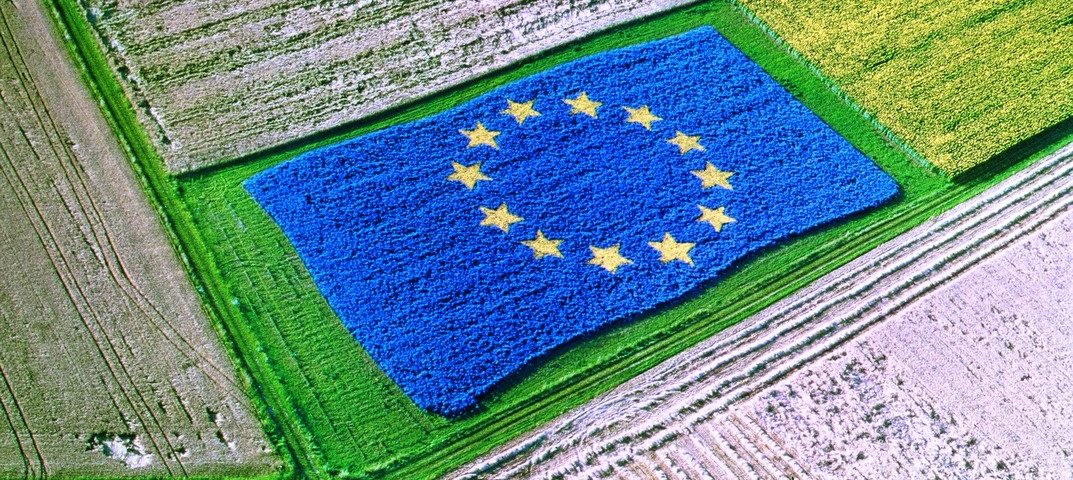As part of an analysis of the future of the Common Agricultural Policy (CAP) which will be implemented during the period 2023-2027, more than 300 experts from 23 EU Member States analysed the expected effects of the policy on biodiversity conservation.
The experts recognised the mediocre performance of the CAP during the current programming period in terms of biodiversity protection and suggest practical measures to correct the weaknesses, especially in the context of the ecological programs, of the new financial instrument to be implemented in the CAP. The researchers emphasise the importance of maintaining landscape elements in agricultural crops, such as drystones, hedgerows, individual trees and strips of uncultivated land. In addition, there is recognition of the essential role that extensive crops, i.e. those without extensive use of agricultural drugs and fertilizers, have for the preservation of biodiversity and the need to increase subsidies in order to reflect the real costs of farmers. Scientists emphasise the importance of funding environmental actions based on the effect they have on the conservation of wildlife species. In addition, the need for increased funding to monitor the impacts of CAP measures on biodiversity is highlighted.
Associate Professor Menelaos Stavrinidis (Department of Agricultural Sciences, Biotechnology and Food Science, Cyprus University of Technology) and Professor Ioannis Vogiatzakis (Faculty of Pure and Applied Sciences, Open University of Cyprus) participated in the main writing team of the paper. The paper was published in the scientific journal Conservation Letters on 30 June 2022 [https://doi.org/10.1111/conl.12901].
Commenting on the findings of the research, Dr. Stavrinidis notes that Cyprus' agriculture is very important for the preservation of biodiversity, because it is characterised by extensive crops, especially in mountainous areas, with a variety of crops and landscape elements. These features favor the presence of many different species of wildlife, which use agricultural crops for food and nesting.
Most crops in mountainous and semi-mountainous areas in Cyprus, according to Dr. Stavrinidis, are a model for the new CAP, because they combine agricultural activity with the preservation of biodiversity. The agriculture of Cyprus must, therefore, be based on the 3P model, i.e. Delivery, Quality, Environment, as this was highlighted through the AgroLIFE (www.agrolife.eu) and Ecowinery (https://www.sustagric.com/ecowinery.html) in which a method was developed to highlight the environmental profile of wine.
Dr. Vogiatzakis, for his part, emphasises that agriculture can coexist with nature conservation, both inside and outside the Protected Natural Areas. After all, one of the reasons why the Mediterranean and especially the Mediterranean islands like Cyprus are biodiversity hot spots worldwide is due to the long-term human presence in relation to other regions of the world and the development of agriculture. The issue and challenge for management is the intensity of farming practices and the extent of cultivated land.
Dr. Stavrinidis notes that the Strategic Plan for the implementation of the new CAP in Cyprus is in the final stages of preparation by the Ministry of Agriculture, Rural Development and Environment. This national plan contains some positive elements, but is characterised by a lack of clear targeting for the conservation of biodiversity in rural areas.
In addition, he considers that the Cypriot farmer is wronged in relation to other member states, because while many of the practices he applies are particularly important for biodiversity, they are not subsidized, because they are considered as a starting point. For example, a viticulturist who chooses to continue traditional grape cultivation on terraces in the mountains does not receive an additional subsidy compared to someone who decides to flatten a mountainside with heavy agricultural machinery in order to facilitate agricultural operations. As a result of these difficulties and many other factors, traditional crops are abandoned, radically changing the shape of the traditional landscape.
Dr. Vogiatzakis adds that the abandonment of traditional activities, which historically shaped the landscape, in addition to the "alteration" that can bring about the character of the landscape, poses risks since the lack of management leads to the change of the vegetation structure in rural and forest areas causing largely in the accumulation of fuel and the creation of a "flammable" landscape. This landscape with the increasingly dry conditions we are experiencing nowadays, leads to catastrophic consequences in the form of mega-fires as we have seen in recent years in the Mediterranean and as we experienced in Cyprus last year. The Mediterranean countryside is a single socio-ecological system in which abandonment and degradation, in addition to environmental impacts,
Finally, Dr. Stavrinidis highlights the issue of the excessive use of agricultural drugs in Cyprus and the difficulties that the state will face in the implementation of the "From Farm to Plate" Strategy, which foresees a reduction in the use of such drugs by 50% by 2030 The initiative of the Commissioner for Health and Food Safety, Ms. Stella Kyriakidou, for the legislative regulation of these objectives, highlights the importance that the Commission attaches to the reduction of the use of agricultural drugs. The Commission's announcement on June 22, 2022 to transform the Directive on the "Rational Use of Agricultural Products" into a Regulation, with legally binding pesticide use reduction targets for Member States, is expected to create significant challenges for Cypriot farmers.
Recognising the difficulties that will arise, the Commission proposes to introduce rules into the CAP to ensure that farmers can be compensated for costs related to the requirements of the new regulation for a five-year transitional period. The utilisation of these provisions by the Ministry of Agriculture, Rural Development and Environment is imperative in order to support and adapt farmers to the requirements of the transition.
In closing, Dr. Stavrinidis emphasised that it is imperative to institutionalise cooperation between researchers and the Ministry of Agriculture, following the model of other member states, in order to improve the CAP Strategic Plan and to assess its effects on farmers, biodiversity and the environment in more frequent and continuous basis.
For more information:
Menelaos Stavrinidis, Cyprus University of Technology, Tel. +357-25002186,
Ioannis Vogiatzakis, Open University of Cyprus, Head of the Terrestrial Ecosystems Management Lab, Tel.+357-22411933,




